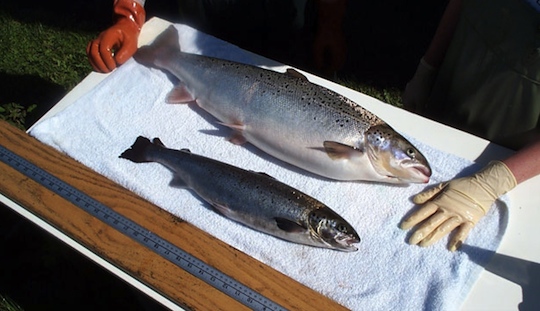
How 3D Virtual Shopping Can Enhance Storytelling and Create More Brand Loyalty for Organic Companies
Since e-commerce began approximately 25 years ago, online shopping has not changed in a meaningful way.
While there may be some exceptions, it has largely been pictures or videos of a product and a shopping cart.
However, after several decades, 3D virtual shopping has finally emerged and is destined to be the future of online retail because it amplifies the shopping experience in an entirely new way. Furthermore, the adoption of this technology is sure to be accelerated because coronavirus has radically impacted the retail industry and the manner in which people are purchasing products.
Businesses in other industries have already started to embrace 3D virtual shopping. Italian denim brand Diesel recently launched Hyperoom, which provides buyers with a 360-degree look at a virtual showroom and allows up-close inspection of each garment. Earlier this year, Maison Christian Dior created a 360-degree shopping experience at its gorgeous boutique on the Champs-Elysées in Paris.
A few months ago, co-founders Sonia Khemiri and Sylvie Giret were all set to open Beautyque NYC, a Soho-based store offering a wide array of non-toxic personal care products, but coronavirus forced them to reassess their plans. What emerged was an interactive, virtual shopping, education and beauty brand experience for customers – all from the comfort of their home.
“We wanted to translate and copy what we initially intended to have at our store in Soho. Incorporating 3D technology into our website allowed us to create the closest possible thing to an in-person shopping experience,” said Sylvie Giret.
This experiential model also showcases Beautyque’s brands and gives them a place where they can be displayed as if they were in a real store and tests a consumer’s response to various products and messages.
“With the COVID situation and the ‘new normal’ that is going to emerge from it, we believed this was a natural evolution in retail,” added Sonia Khemiri.
For brands that are being sold in Beautyque and showcased in its 360-degree virtual store, this new shopping experience holds tremendous appeal.
“This 3D concept is phenomenal, and it feels like you are going into a store, providing a sensory experience rather than just buying something online,” said Aileen Dow, founder of si SKIN Organics. “It was important to me to have a different platform where I could get information about my brand out to the public.”
For organic businesses that utilize this technology on their own websites, 3D virtual shopping can create an experience where a visitor will be browsing products while seamlessly learning about the company’s new biodegradable packaging or its regenerative farming projects. This immersive experience is an effective vehicle to communicate a brand’s story, which may result in more time spent on a site, improved conversion rates and greater loyalty.
By no means is the current version of 3D virtual shopping perfect, but its functionality will only get better over time.
Nevertheless, with consumers utilizing online shopping more than ever before, this technology could be of tremendous benefit to organic brands that use it in a compelling way.
 |
With gratitude, 
Max Goldberg, Founder |
Quick Hits
* I recently joined my friends Whitney Lauritsen and Jason Wrobel on their podcast This Might Get Uncomfortable, where we talked about all things organic and had a great conversation.
* J.E.D.I Collaborative just announced that it has reached majority funding. Excellent news!
* In New York City, Hu Kitchen has decided to close its doors after 8 years in business, and the company’s attention will now be focused on its chocolate and snacking business. Many thanks to Jason, Jordan and Jessica for the fantastic food and amazing memories.
* Toronto’s Live Organic Food Bar, the city’s original raw vegan restaurant, has also decided to close its doors, after operating for the last 19 years.
* Congrats to Carla Vernón, former President of the Organic & Natural Operating Unit at General Mills, for being elected to the Board of Trustees at Princeton University, her alma mater.
* 7-11 is donating nearly 1 million bottles of its 7-Select Go!Smart™ pressed organic juice to Feeding America.
* Actress Cameron Diaz has launched Avaline, a new brand of wine made with organic grapes.
* Sol Organica, the parent company of Sol Simple, has released its 2019 Impact Report. Pipeline Foods has also released its 2019 Corporate Impact Report.
* As part of the Forever Farms program, $780,000 was raised to protect critical organic farmland in Nevada County, California.
* In Washington, a former art gallery is now the Seattle BIPOC Organic Food Bank.
* Ghost kitchens are estimated to become a $1 trillion global business.
* Pakistan is making a real push to become a hub for organic agriculture.
New Organic Products
Lemon Lime and Tropical Twist Prebiotic Sparkling Tonics from REBBL
Last fall, REBBL introduced its Ginger Gold and Forest Berry sparking prebiotic organic tonics, and the company has just added Lemon Lime and Tropical Twist to this lineup. 6g of prebiotics for digestive support, 4g of sugar or less, grain-free and keto-friendly. Exclusively available at Whole Foods Market nationwide.Black Elderberry Gummies from Gaia Herbs
Gaia Herbs has announced the extension of its Black Elderberry line with three new organic offerings -- Black Elderberry Extra Strength Gummies, Everyday Elderberry Gummies and GaiaKids® Everyday Elderberry Gummies. All the gummies use organic black elderberry fruit and contain no added sugars, flavors, colors or gelatin. Available on the company's website and at health food stores nationwide.Blueberries from Root 24 Farms
Root 24 Farms, a new organic blueberry grower with deep, fifth-generation roots, has launched its first products -- fresh, frozen, dried and powdered organic blueberries. All of the blueberries are grown in the soil (not hydroponically) on 650 acres in Central Washington.
Weekly News Summaries


One Step Closer to GE-Salmon in the U.S. -- A Troubling Development
By Rachel Sapin
AquaBounty, the genetically-engineered salmon producer, has begun the commercial-scale harvest of conventional Atlantic salmon raised at its first U.S. farm in Indiana.

Vital Farms files for an IPO
By Christopher Doering
The producer of organic and pasture-raised eggs posted sales of $140.7 million in 2019, with net income of $3.3 million.

Yamo raises €10.1 million in Series A
By Steve O'Hear
Yamo, an organic baby food brand based in Europe, has closed on a round of financing to expand distribution and grow its product portfolio.


Toxic Pesticides Found in Conventional Milk, Not Organic Milk
According to a new study, conventional U.S. milk contains growth hormones, antibiotics and low to elevated levels of pesticides not found in organic milk.
Members of Congress ask USDA to finalize the Origin of Livestock Rule
By Rep. Chellie Pingree, Rep. Anthony Brindisi, Rep. Dan Newhouse
The USDA has missed its federally-mandated date to finalize the Origin of Livestock rule, whose absence is devastating many organic dairy farmers.

Bayer's New GMO is Resistant to Five Different Pesticides
By Johnathan Hettinger
The pesticide treadmill is getting more dangerous.

Online Grocery Sales hit $7.2B in June, Month-to-Month Growth Slows
By Mary Ellen Shoup
According to a report from Brick Meets Click, contact-less shopping method is becoming more integral for a broader consumer base.


High Levels of Glyphosate Weedkiller in Hummus
By Alexis M. Temkin, PhD and Olga Naidenko, PhD
Independent laboratory tests commissioned by the Environmental Working Group found glyphosate in more than 80% of non-organic hummus and chickpea samples.

Raley’s opens first Organics, Nutrition and Education focused Retail Store
By Emily Park
In Truckee, California, Raley’s has opened its first Raley’s O-N-E (organics, nutrition and education) location.

Mintel: Consumers to Adapt ‘Less but Better’ Approach to Animal Proteins
By Mary Ellen Shoup
Animal proteins will become less of a center-of-the-plate staple for many consumers, according to Mintel, which attributes the shift to the ability to meet protein needs from a wider variety of sources.
Want to share this newsletter on social media? You can use this link: Newsletter Link
The material in this newsletter is copyrighted and may be reprinted by permission only. All requests must be in writing. Please use our contact form to request republication rights.
Newsletter Archive
Quick Hits
* I recently joined my friends Whitney Lauritsen and Jason Wrobel on their podcast This Might Get Uncomfortable, where we talked about all things organic and had a great conversation.
* J.E.D.I Collaborative just announced that it has reached majority funding. Excellent news!
* In New York City, Hu Kitchen has decided to close its doors after 8 years in business, and the company’s attention will now be focused on its chocolate and snacking business. Many thanks to Jason, Jordan and Jessica for the fantastic food and amazing memories.
* Toronto’s Live Organic Food Bar, the city’s original raw vegan restaurant, has also decided to close its doors, after operating for the last 19 years.
* Congrats to Carla Vernón, former President of the Organic & Natural Operating Unit at General Mills, for being elected to the Board of Trustees at Princeton University, her alma mater.
* 7-11 is donating nearly 1 million bottles of its 7-Select Go!Smart™ pressed organic juice to Feeding America.
* Actress Cameron Diaz has launched Avaline, a new brand of wine made with organic grapes.
* Sol Organica, the parent company of Sol Simple, has released its 2019 Impact Report. Pipeline Foods has also released its 2019 Corporate Impact Report.
* As part of the Forever Farms program, $780,000 was raised to protect critical organic farmland in Nevada County, California.
* In Washington, a former art gallery is now the Seattle BIPOC Organic Food Bank.
* Ghost kitchens are estimated to become a $1 trillion global business.
* Pakistan is making a real push to become a hub for organic agriculture.





